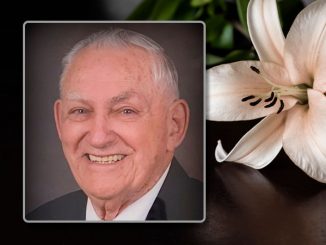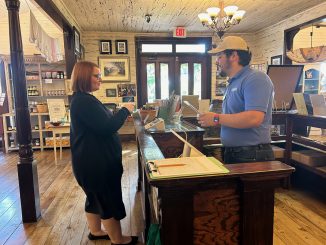
By Jeremy Alford
More than a week after the regular session adjourned, Louisiana’s oil and gas industry is still capping off what has arguably been the most conspicuous policy initiative of the year.
Its effort to undercut the massive lawsuit filed by the Orleans-area flood authority has been signed into law, and so has the compromise bill on legacy litigation. While this mutes the warring at the Capitol, for now, the battle now moves onto other battlefields.
The resulting laws endorsed by Gov. Bobby Jindal are almost certainly destined for the courts and the oil lobby is looking to turn them into election issues this year and next, all the way down the ballot to the local level.
The Louisiana Oil and Gas Association entered the session with controversy at its back, with its headman Don Briggs taking fire for failing to testify in court, due to health concerns, and for an earlier deposition that gave critics temporary ammo.
LOGA was able to unload the baggage quickly and easily as the opening gavel dropped, thanks in large part to its friends.
“It has always been us at the table testifying on these issues,” said LOGA Vice President Gifford Briggs, “whereas this time the administration was at the table.”
In addition to Jindal’s assistance, LOGA made the strategic decision to have large landowners front the legacy litigation push, and it found a street fighter in Sen. Robert Adley, R-Benton, the sponsor of SB 667.
“But I can tell you this was still the hardest session we’ve faced,” said Gifford Briggs.
Adley’s bill applies retroactively to some 300 cases where plaintiffs are seeking damages and cleanup for environmental damages. It allows liability to be claimed, landowners to be paid and the Department of Natural Resources to develop cleanup plans — to the ire of opponents, who believe DNR is too friendly to the energy industry.
Adley also had a hand in introducing a set of bills to shutter the lawsuit filed against oil and gas companies by the Southeast Louisiana Flood Protection Authority-East. By means of a political handoff, the language from one of Adley’s bills was inserted into SB 469 by Sen. Bret Allain, R-Franklin, which stipulates that only agencies that are part of the Coastal Zone Management Act can file such suits.
Likewise retroactive, it’s a direct attack on SLFPA-E. The House gave approval Thursday evening and the bill now heads to the Senate for concurrence.
For the public opinion battle, the opposition landed far more blows with direct mail pieces and guest columns in major newspapers. LOGA’s public relations vehicle, ChangeLouisiana.org, had a much smaller footprint, admitted Gifford Briggs.
The mechanics inside the rails were a different story and lawmakers say the floor work by the energy faction was intense. The Louisiana Association of Business and Industry did some of the heavy lifting in what proved to be an induction of sorts for its mostly new staff. With the loss of its top leaders since last session and under guidance from freshman president Stephen Waguespack, the lobbying blitz showed the new kids could play tough and smart, lawmakers say.
The one exception to the clean sweep was the failed crusade to bury the coastal lawsuits against oil and gas companies, many of them independents, filed by the parish councils in Jefferson and Plaquemines. Opposition from more than a dozen parish presidents helped halt the legislation introduced by Rep. Joel Robideaux, R-Lafayette.
The oil lobby is still plotting its next move.
“We’ve got to huddle on that,” said Gifford Briggs. “Until there’s a new governor, I don’t think the will is there to address it in the Legislature.”
Attention will instead turn to the source of the parish suits, with elections coming up first for Plaquemines’ council members.
“Industry will have something at stake in who gets elected,” Gifford Briggs added.
On the other side of the issue, retired Army Lt. Gen. Russel Honoré emerged as a dominating voice for opponents, even if he wasn’t able to slow down LOGA’s progress. After being among the few lead government personalities from the Katrina recovery to cross the threshold unscathed, Honoré finally showed what was next for him on the public stage.
Calls for him to put his own name on the ballot have increased, he told LaPolitics, but he’s still being coy in his responses. Honoré is being rather bold, however, regarding the activism that’s planned between now and the 2015 session, with an eye toward more protests like Adley saw recently in front of his home and office.
“When the session is over, legislators are going home,” said Honoré. “We’ll be going to their front door.”
For supporters of the energy industry, that’s the least of their worries. The next contest for the legacy and flood authority laws could take place in the courts with challenges from the opposition. “Absolutely. No doubt they are coming,” said Gifford Briggs. “The appeals and decisions will go all the way up to the top, whether they’re state or federal cases.”
Geography, race could alter No. 2 forecast
The inclusion of a strong black Democrat or a commanding candidate from north Louisiana could make the early lead posted by Jefferson Parish President John Young in the race for the state’s next Lieutenant Governor old news. That’s the takeaway from a new poll of 600 likely voters conducted April 28-30, and released recently, by Southern Media and Opinion Research.
With a margin of error of +/-4 percent, Young takes the top spot in a three-way GOP trial heat with 32 percent, followed by Plaquemines Parish President Billy Nungesser, 23 percent, and state Sen. Elbert Guillory of Opelousas, 9 percent. Undecided gobbled up 36 percent of participants, a substantial figure.
Guillory was not identified as an African-American to participants and 43 percent of black voters polled were undecided. Nungesser pulled the highest black vote with 28 percent and would be hurt most by Baton Rouge Mayor Kip Holden, a Democrat, jumping in.
“The question is whether Kip could do anything in the runoff. He would would certainly make the runoff and kill Nungesser’s chances in the process,” said pollster Bernie Pinsonat.
Pinsonat said he doubted if Guillory could make serious headway in the state’s black communities, or gain any real momentum among white voters, which gravitated most to Young in the poll by 36 percent.
Conducted for his poll subscribers, Pinsonat said the survey only included declared candidates. Others worth keeping tabs on are Public Service Commissioner Scott Angelle of Breaux Bridge, who may be lowering his sights after pondering a run for governor, and State Police Superintendent Mike Edmondson of Baton Rouge.
All of the names mentioned above, though, find their political strongholds south of or in the vicinity of I-10. While the population numbers favor a contender from the south, the right kind of politico from the piney north could turn this developing race on its ear.
But for now, Young is the man to beat if you believe the polls, with a huge base of support that stretches into New Orleans and what should be an enviable fundraising operation.
“When all the corruption hit in Jefferson, he emerged as the guy who benefitted the most. He’s taken advantage of it. That’s going to work for him,” said Pinsonat.
They said it
“I may be wrong but I’m consistent.”—Rep. Rob Shadoin
I think it slices it, not guts it.”—Rep. Jay Morris on a proposed amendment
“It guts it like a sac-a-lait on a Friday night.”—Rep. Gordon Dove
“I like my sac-a-lait whole.”—Morris




Be the first to comment